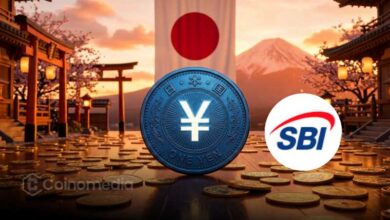Hong Kong Opens Crypto Markets to Global Order Books
Hong Kong ends its ringfenced crypto trading, allowing local firms to access global liquidity.

- Hong Kong allows crypto exchanges to connect with global order books
- The previous ringfenced trading model is now lifted
- Move boosts market access and liquidity for local firms
In a major step for its digital asset sector, Hong Kong has officially allowed crypto exchanges to connect local trading entities with global order books. This decision marks a shift from its earlier ringfenced model, where crypto trading within Hong Kong was kept separate from the global crypto market.
This new approach is expected to significantly increase liquidity and efficiency, helping Hong Kong’s crypto ecosystem align with international markets. The move is also seen as a strategic attempt to cement the city’s role as a global digital asset hub.
End of the Ringfenced Model
Previously, crypto exchanges licensed in Hong Kong operated under strict limitations. One key rule was the ringfenced trading model, which meant exchanges could only match trades between local investors — completely isolating them from the wider global market. This model limited liquidity, pricing options, and access to broader trading opportunities.
The latest policy shift changes that. Now, local exchanges can access and match orders with global participants. This means a Hong Kong trader can now interact with international liquidity pools, boosting market depth and trading efficiency.
A Boost for Hong Kong’s Crypto Hub Ambitions
This move aligns with Hong Kong’s broader ambition to become a regulated yet innovation-friendly crypto hub. By allowing global order book access, regulators aim to attract more institutional players, crypto startups, and investors to operate within its jurisdiction.
Industry players have welcomed the update, noting it balances compliance with growth. Global access is also likely to bring more competitive pricing and tighter spreads, benefiting both exchanges and investors.
As Hong Kong continues to refine its regulatory framework, this shift signals a more open and competitive crypto market environment, positioning it alongside major players like Singapore, Dubai, and Switzerland.



